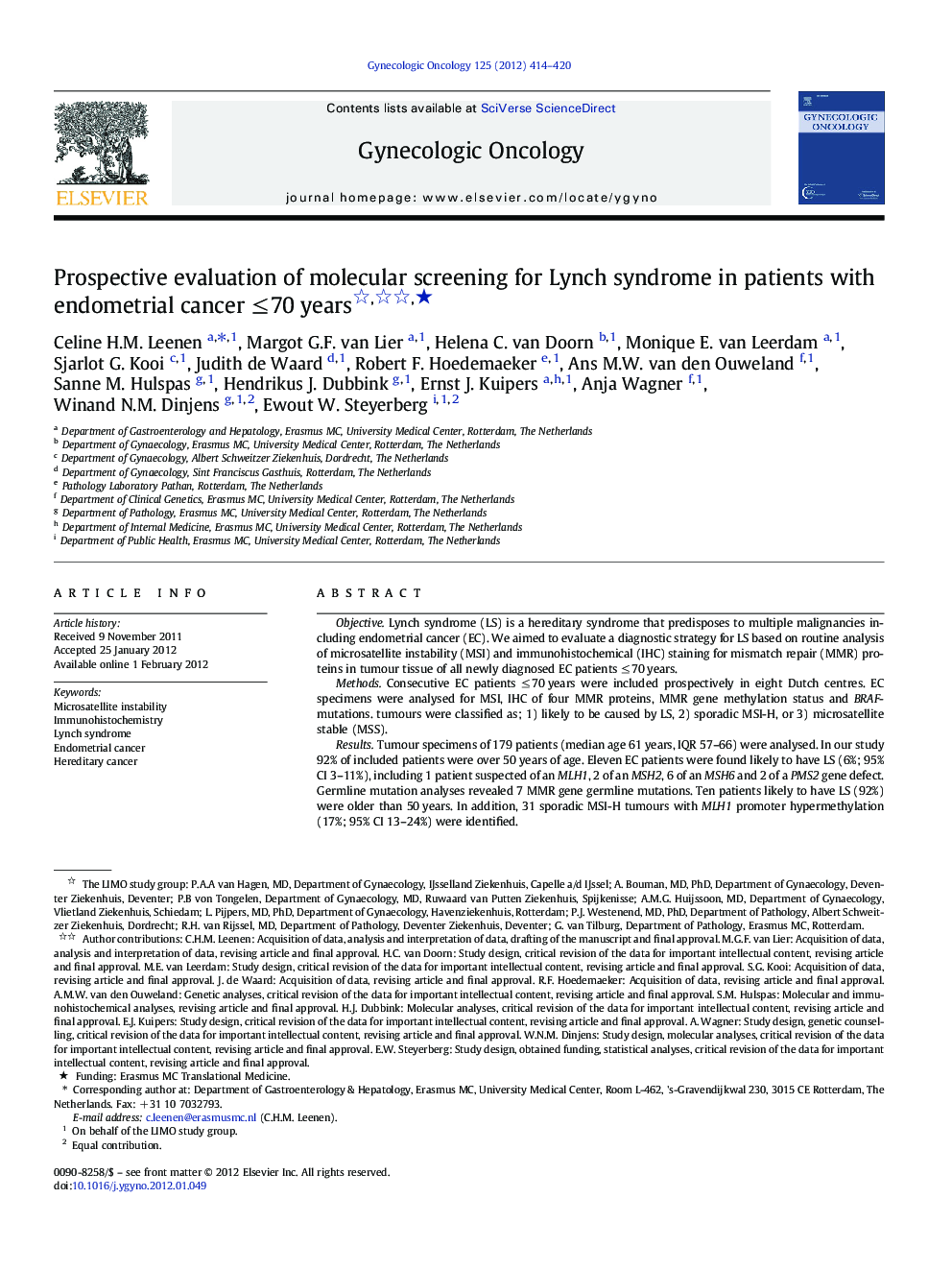| Article ID | Journal | Published Year | Pages | File Type |
|---|---|---|---|---|
| 3945153 | Gynecologic Oncology | 2012 | 7 Pages |
ObjectiveLynch syndrome (LS) is a hereditary syndrome that predisposes to multiple malignancies including endometrial cancer (EC). We aimed to evaluate a diagnostic strategy for LS based on routine analysis of microsatellite instability (MSI) and immunohistochemical (IHC) staining for mismatch repair (MMR) proteins in tumour tissue of all newly diagnosed EC patients ≤ 70 years.MethodsConsecutive EC patients ≤ 70 years were included prospectively in eight Dutch centres. EC specimens were analysed for MSI, IHC of four MMR proteins, MMR gene methylation status and BRAF-mutations. tumours were classified as; 1) likely to be caused by LS, 2) sporadic MSI-H, or 3) microsatellite stable (MSS).ResultsTumour specimens of 179 patients (median age 61 years, IQR 57–66) were analysed. In our study 92% of included patients were over 50 years of age. Eleven EC patients were found likely to have LS (6%; 95% CI 3–11%), including 1 patient suspected of an MLH1, 2 of an MSH2, 6 of an MSH6 and 2 of a PMS2 gene defect. Germline mutation analyses revealed 7 MMR gene germline mutations. Ten patients likely to have LS (92%) were older than 50 years. In addition, 31 sporadic MSI-H tumours with MLH1 promoter hypermethylation (17%; 95% CI 13–24%) were identified.ConclusionsMolecular screening for LS in patients with EC diagnosed ≤ 70 years, leads to identification of a profile likely to have LS in 6% of cases. New screening guidelines for LS are needed, including recommendations for EC patients older than 50 years of age.
► Tumour tissue of EC patients ≤70 years is suspected of LS in 6% of patients according to molecular screening. ► New screening guidelines for LS should include recommendations for detecting LS in EC patients older than 50 years. ► Physicians and patients have to be educated about the importance of identifying LS and genetic counselling for LS.
